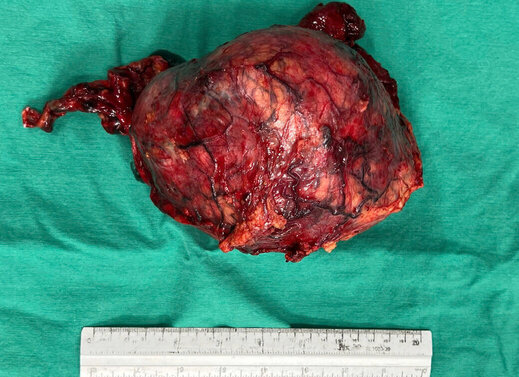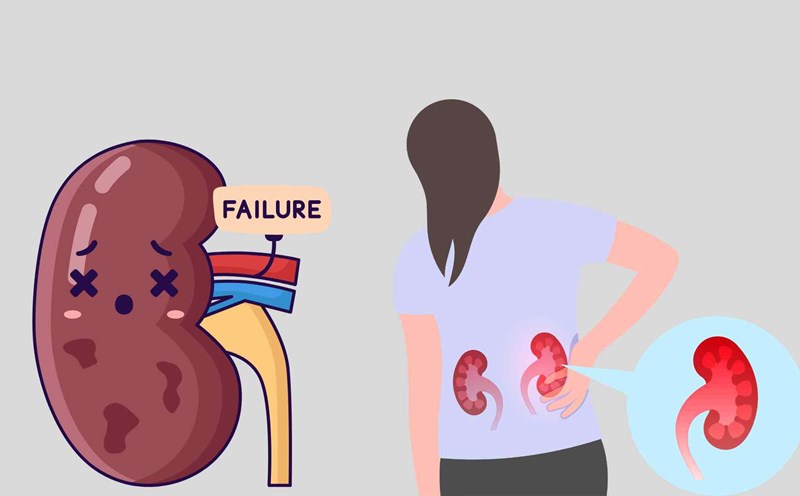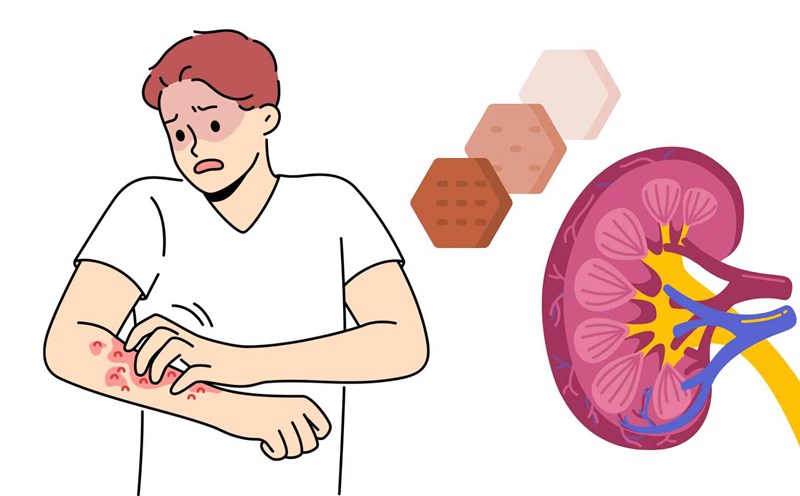detecting a large tumor with dangerous complications
The patient was admitted to the hospital with pain in the left abdomen, sometimes blood urine and a slight abdominal blockage.
Before that, the patient was healthy and had never been diagnosed with the disease. The results of the examination and imaging diagnosis showed a tumor in the left kidney measuring about 15 x 20 cm, completely destroying the structure of renal tissue, encroaching on the renal toponym - bus station.
Notably, the tumor caused thrombosis in the kidney vein, spreading to the lower end vein, increasing the risk of life-threatening pulmonary embolism or embolism.
Surgery with many challenges
According to BSCKII. Vo Quoc Hoan - Deputy Head of the General Planning Department, Doctor of the General Surgery Department, who directly performed the surgery, said: The surgery belongs to the urology - oncology surgery group and is difficult and at high risk due to the large size of the tumor: occupying the entire kidney, narrowing the surgical area, limiting the operation of peeling.
Encroachment of large veins: thrombosis spreading from the kidney vein to the lower major vein, large blood flow, risk of massive blood loss or thromb moving.
High risk of anesthesia - resuscitation: due to the influence of lower-level varicose vein circulation, requiring strict blood pressure control.
The patient was carefully prepared before surgery, given blood transfusion, and a comprehensive assessment of heart, lung, and kidney function. During the surgery, the team removed the left kidney and entire tumor, and opened the lower main vein to remove the thrombosis, preserving the structure of the blood vessels and the function of the right kidneys to the fullest extent.
The surgery process took many hours, requiring the surgeon to have precise vascular micro-surgery techniques and coordinate smoothly with anesthesia - resuscitation.

The doctor also shared that after surgery, the patient recovered well, kidney function must be stable, eating - exercising gently after 1 week. Patients are prescribed additional treatment with immunotherapy to reduce the risk of recurrence and improve their vital prognosis.
Renal Cell Carcinoma (RCC) can progress silently, only detected when the tumor is large or has complications. Symptoms such as back pain, bleeding, and abnormally large abdomen need to be examined by a specialist early.
Timely diagnosis and intervention help increase the ability to perform thorough surgery, reduce complications and improve the quality of life for patients.











